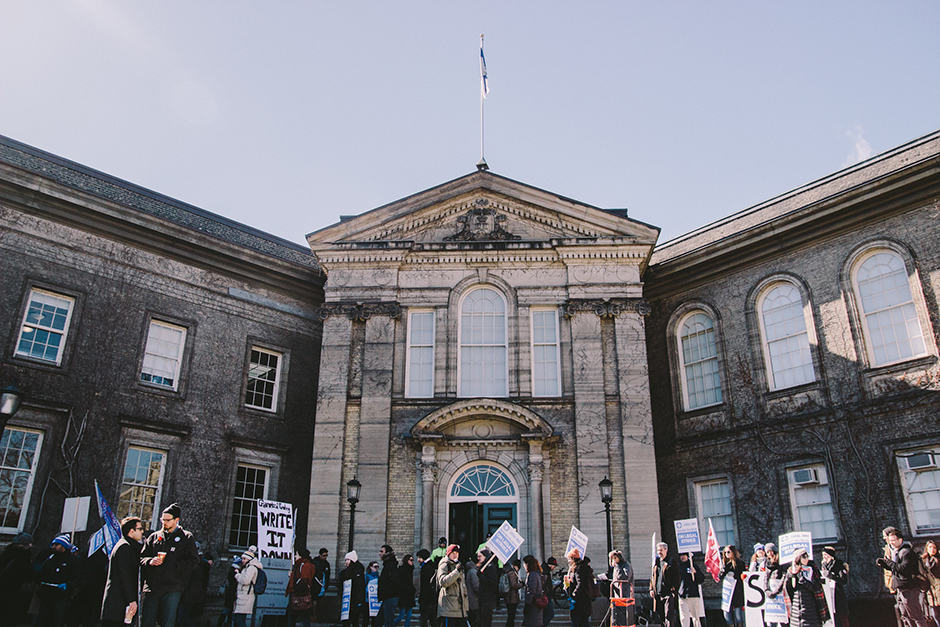On May 11 and 12 the University of Toronto hosted the “Cities of Learning – The University in the Americas” symposium. The two-day conference addressed the relationship between cities and universities and included a panel discussion featuring university president Meric Gertler alongside three other university presidents from Chicago, Sao Paulo and Beunos Aires.
While the president’s panel was intended to portray a sanitized image of the university, an unsolicited disruption shook the event’s prestige and revealed the university’s true relationship to its students, staff, and city.
During the panel, a group of attendees vocalized their dissatisfaction with the university’s contentious behaviour in its recent labour issues; they were aggressively silenced by the event’s moderator, professor Mel Cappe. We were later informed that this silencing was then repeated after the panel, when the moderator shouted at another attendee who was expressing her discontent with the way things were handled, claiming that he “didn’t have the time” for the group.
The way the university deals with such disruptions is not consistent, but rather, based on its economic interests and marketing agendas. For example, earlier this year an event hosted by the Graduate Student Union (GSU) exposed the university’s investment in companies complicit in war crimes.
Cappe’s actions leverage the power and privilege embedded in his position in order to abuse the nature of open and equitable dialogue. His behaviour is indicative of the complacency of the university administration in perpetuating these power structures by actively attempting to silence those who resist them.
The group’s final proclamation before they were ushered off the premises claimed that the University of Toronto is an elitist institution, to which the moderator response was that he is not ashamed of his own elitism.
Cappe’s response is characteristic of a trend in many institutions of higher learning around the world that celebrate elitism, while enabling an increase in the privatization of scholarship, and subsequently, the commercialization of knowledge.
Recently, a news article published by the U of T News glorified the symposium in question, while completely overlooking the encounters between the moderator and the attendees. Instead, the article focused on painting an idealized picture of the relationship between the university and the city.
While it is uncertain to which organization the disrupting group belongs to, their actions came at a particularly significant time given the recent strike, which shed light on the contentious relationship between the university administration, staff and students.
By failing to use the symposium as a platform to address the problematic realities within our university and our city—whether that was by forcibly silencing voices that wished to make ongoing labour disputes visible, or by concealing the issues of social inequality and exclusion that are experienced during mega-events—the university was complacent in propagating these unequal power relations, all while branding itself as a haven of diversity, collaboration, and creativity.
The events that we witnessed at this symposium, sandwiched between the recent labour strike and the hosting of the upcoming Pan Am Games, cannot be understood in isolation. Rather, they were deliberate attempts to manipulate the public’s perception of the University of Toronto’s relationship to its staff, students, and city; first, by mending a broken image—then, by portraying an idealized one.
Ekaterina Mizrokhi and Nadi Abusaada are urban studies students.


